The Challenges of Boris Johnson’s 2025 Full Fibre for All UK Pledge
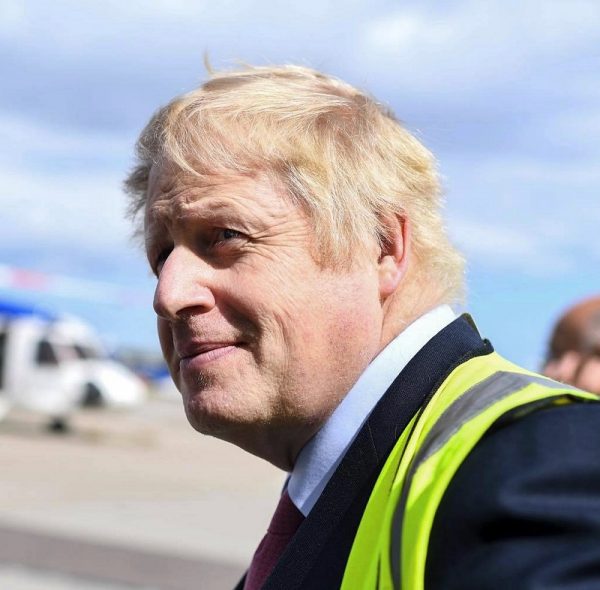
Under the 2033 target we felt 2 million per year was viable for the first c.50% of premises but this seemed likely to scale off dramatically for the last half, even though that target requires such a pace to be maintained from start to finish.
Inevitably it always takes considerably longer to connect increasingly small and sparse communities, especially in rural areas but also some digitally disadvantaged urban and suburban ones too.
Getting this deployment rate up to 5 million, and then keeping it there, is thus no small ask and here are a few reasons why.
Four Key Challenges for the 2025 Target (ISPreview’s Thoughts)
* Skills and Labour – Five years is an extraordinarily short space of time for FTTP to cover the whole of a country like the UK, which would require a massive increase in skilled engineers. At present the market is already strained by a shortage on this front and that’s without Brexit having had its full impact.
Even if you could find all those people and train them up quickly, which seems unlikely in such a short space of time (the UK is not China or the Soviet Union and other countries need those engineers too), then that’s a lot of short-term workers suddenly losing their jobs after 2025. Unions may not be happy and it’s a tough ask for the workers too.
* Funding – Some have suggested that covering the entire country could cost £30bn (it’s unclear whether this factors all of the existing fibre or not), although more than half of premises seem likely to be done by commercial operators. Meanwhile the FTIR report said that “additional funding” of around £3bn to £5bn would be needed to support commercial investment in the final c.10% of areas alone.
However we see £3bn to £5bn as a low estimate for public funding and that’s assuming the private sector will try to match it, which is by no means guaranteed. Past a certain point the economic model, even with public match funding, becomes very strained; much as we’ve already seen in some areas like Wales (here). Boris will need to find a lot of money and soon, but clearly that’s only part of the challenge.
* Competition – The problem with throwing a lot of public funding at any market – particularly one where Ofcom and the previous administration had been doing a reasonable job of growing competition for Openreach by fostering alternative network providers (Cityfibre etc.) – is that you run the risk of creating market distortions and damaging that progress.
Boris is likely to face a heap of complicated problems, not least with ensuring fair competition between ISPs and managing overbuild (getting providers to work together in order to limit overbuild – so as to boost coverage – is like herding cats), which could also result in legal challenges and all sorts of other as yet unforeseen delays. The FTIR largely moved to encourage the market to do most of the work but a more aggressive intervention may now be needed in order to speed it up.
Similarly if Boris puts money toward residential focused upgrades in urban areas, as well as rural ones, then that could conceivably discourage private investment and hurt alternative network providers (i.e. intervening in areas where natural commercial competition would normally resolve itself). As such there’s always the risk that tax payers could end up paying more than might otherwise have been necessary.
* Brexit and Politics – The political process required to develop and consult upon such a plan might take a couple of years to run its course, which is without even considering the procurement / tender process before building could begin (it took the original Broadband Delivery UK programme from 2010 to 2013 to get all of its foundation fully implemented).
Sadly by then you’re only left with just 3-4 years to achieve a task that looks, frankly, almost impossible. Admittedly some funding could perhaps skip this by adopting or expanding upon existing approaches (Local Full Fibre Networks, Gigabit Vouchers etc.) but to reach rural areas with FTTP and set a formal target is likely to necessitate a new debate / legislation.
The above has led some, including myself, to suspect that Boris may have to perform somewhat of a political fudge by watering down his definition of “full fibre“. One approach could be to include Virgin Media’s hybrid fibre coax network, which already covers a little over half of UK premises and will soon be capable of 1Gbps speeds via the DOCSIS 3.1 upgrade (here).
Alternatively he might weaken the very definition of premises passed, which would be a comically bad move and isn’t going to change how the UK is ranked by independent organisations. The above approach (add Virgin etc.) is more plausible but there still isn’t a magic fix for tackling the final 40-50% of premises in the space of just 5 years. Boris will need to pull a pretty big rabbit from his hat and we’re keen to see what that looks like.
One other option, which could be politically quite embarrassing, is that Boris might have to water down that 2025 target and admit that it isn’t feasible.
Models Considered by the FTIR
One significant upside to all this is that it has put the focus firmly on full fibre networks, which is something that many of us have been wanting to see for the best part of a decade. Certainly nobody can fault Boris for having the aspiration to make a genuinely positive change, which we very much welcome, although the implementation side is clearly where problems emerge.
Just for some context we’ve published a table of costings and time-scales from an analysis by Frontier Economics of FTIR implementation via different UK market models (at present we seem to be following something akin to the enhanced competition model below). Interestingly not one of these has forecast to get us to 100% coverage in 5 years or even close. In our eyes these also look optimistic.

What do the network operators say?
At this point we felt it prudent to ask what sort of changes some of the key network operators would demand in order to achieve the 2025 target. A smaller ISP called Zzoomm has already provided some ideas (here) but we were more interested in the sometimes conflicting points of view offered by establisher players like Cityfibre, Hyperoptic and Openreach. We also asked Virgin Media and Ofcom but they didn’t respond.
Dana Tobak CBE, MD & CEO of Hyperoptic, said:
“We welcome Mr Johnson’s ambitions for full fibre connectivity. Addressing the digital divide is important for individuals, business and the UK economy. Over the last eight years we have been investing in growing our own 1Gbps network which is set to reach five million homes by 2024 and we look forward to sharing our learnings with government on the skills, investment and deployment conditions required to support the roll out of fibre networks at scale in the UK.
We firmly believe in the importance of symmetrical speeds with upload and downloads being equally important and look forward to continue leading the charge to Gigabit Britain.”
A Spokesperson for Openreach said:
“The new Prime Minister has a great ambition when it comes to broadband and so does Openreach. While we can’t speak for others, we’re determined to lead the way in helping the Government realise its goal.
Building full fibre across the entire UK is a major civil engineering challenge. According to the NIC it requires £33 billion and a physical build to more than 30 million front doors, from suburban terraces to remote crofts.
Government can go further and faster to bust barriers and create an environment that encourages investment. We’ve talked before about the enablers needed for us to reach 15 million homes and businesses, these include making open access full fibre mandatory in all new-builds, and reforming business rates, planning rules, access rights, street works and building regs.
The barriers haven’t changed, but some urgent action to bust them could go a long way to making nationwide FTTP a reality.”
A Cityfibre Spokesperson said:
“We strongly welcome the new PM’s focus on accelerated roll out – no-one should be left behind on outdated copper. It is undeniably a stretch target, and we should not underestimate the scale of the challenge, but CityFibre is an ambitious, visionary company and stands ready to play a pivotal role in moving the country towards it.
Our own vision is to reach more than 5 million homes by 2025, which will contribute approximately 20% of that national target, and we are already making that vision a reality with builds under way in 10 cities and 16 more confirmed for investment.
The Government’s current full fibre strategy was an important step in the UK’s full fibre journey. But it was devised to deliver nationwide coverage by 2033. If we are to go quicker – much quicker – bold thinking is required.”
We noted plenty of agreement over natural areas of common ground, such as the usual suspects of extending the business rates holiday on new fibre beyond today’s 5 years (Scotland has already pushed it to 10 years but Openreach wants 20), mandating open access to new build home developments, access to existing apartment buildings (absentee landlords make this difficult), as well as tackling tedious wayleaves, softening planning rules / permits and access to skilled labour.
However it was also no surprise to find that the operators were keen to protect their often opposing interests in other areas. For example, Openreach would probably love nothing more than for Ofcom to leave it alone and Cityfibre would similarly love nothing better than for Openreach to stop building in areas they target (the feeling is probably mutual). Like we said earlier, herding cats.
Suggestions for Boosting the Rollout
* [Openreach] Use regulation to incentivise the upgrade from copper to fibre. We need to be able to withdraw copper-based services as quickly as possible wherever FTTP becomes available, to remove the cost of running duplicate networks. We need to be able to set prices for access services provided over the existing network that allow us to realise the full value of the assets in that network before we have switched all customers onto full fibre services. We will then want to close significant numbers of exchanges as the fibre rollout continues, and we will require Government support to raise public awareness and help retailers to make a success of a switchover.
* [Openreach] Regulation should be kept to the minimum of what is required to ensure competition. The ability of new network builders to share access to Openreach’s duct and pole infrastructure on cost-based regulated terms will enable widespread competition between rival network providers. As such, any regulatory requirements on Openreach to provide active wholesale access services over full fibre can and should be kept to an absolute minimum.
* [Openreach] Regulation also needs to be designed to encourage FTTP build at the accelerated rate that the government desires. In practice this means at most a single anchor price for an entry-level service set at a sufficient premium equal to the copper-based equivalent to encourage rapid build. We believe this approach would incentivise investment across most of the UK.
* [Cityfibre] Efficient private investment: Ample private investment is ready and waiting to complete most of the job. To unlock it at record-breaking speed, the UK should prioritise maximum coverage in the shortest possible time. Greater transparency of operators’ plans would allow the industry to prioritise maximum geographic coverage in this first phase, whilst leaving open the possibility of head-to head competition in the longer term. The Government should also encourage operators to collaborate to achieve rollout in parts of the country that can only sustain a single full fibre network.
* [Cityfibre] Efficient public investment: Public investment is likely to be needed to complete roll out in some areas. For efficiency it should complement, not cut across, the private investment in the commercially viable part of the market. Where it is used it should be contestable by as many firms as possible; procurement processes should be streamlined; and local authorities further empowered to ignite full fibre investment in their towns and cities.
* [Cityfibre] Nurture and protect competition: The current Government strategy rightly assumes a competitive market of multiple operators – not one dominated by Openreach – is needed to deliver national coverage and a good outcome for consumers. Much more could still be done to protect that nascent competition, so that new entrants are able to scale to play the role required in meeting the PM’s challenge.
* [Cityfibre] Remove barriers to deployment: The Government must deliver on its promises to legislate on wayleaves and ensure workable access to Openreach’s ducts and poles. We also need security of access to the skills and workforce to make this huge civil engineering task happen, through Brexit and beyond.
* [Cityfibre] Engage the country: CityFibre already works tirelessly and transparently to explain the benefits of full fibre to residents and businesses during the unavoidable disruption of construction. The Government’s explicit and visible support during this massive civil engineering project is essential to maintain public engagement. We also need action to help consumers migrate to those new full fibre networks, if they choose, once they are built. This requires advertising and to be clear about what is full fibre and what is not, and smooth process to be in place to enable consumers to switch.
Admittedly the FTIR and Ofcom’s related proposals will tackle some of the aforementioned suggestions (e.g. improved access to Openreach’s ducts etc.), although clearly going further and faster than the previous target does seem likely to require more policy and regulatory changes, beyond the planned measures.
Assuming many of the perceived barriers can be fairly tackled then this will absolutely help to boost the rollout of full fibre technology. Of course none of it will guarantee that 2025 is actually achievable, at least we have not yet seen any model to show this being viable. Whether or not Boris will even survive in the job long enough to set out the necessary funding and policy for delivering on all this is also another matter entirely.
Meanwhile the heads of the ISPA, INCA and Federation of Communications Services (FCS) have just published a new open letter to Boris Johnson that calls for quick action “within the next 12 months” to resolve the aforementioned areas of common ground (i.e. business rates, wayleaves, new build homes and skills/labour). We’d call these the soft targets for change.
However this letter skirts around the 2025 target by opting not to specifically reference it. Instead it talks in vague terms about improving the rollout pace and supporting the core vision of 100% fibre coverage, which we must not forget was also the previous administrations aspiration (albeit by 2033 instead of 2025). Few in the industry think 2025 itself is realistic, even with the desired changes.
“As you yourself have written, “it cannot go on like this”. Nationwide full fibre coverage is not a can that can be kicked down the road, and these issues need to be resolved by your Government within the next 12 months to ensure that industry can continue to accelerate rollout. As you said on the steps of Number 10 as you began your Premiership: “let’s start now.” Industry is ready and willing to work with yourself, your Government and the new Digital Secretary to ensure that Britain’s connectivity is fit for the future. But that work needs to start now, and 100% fibre coverage requires a 100% commitment from Government,” concluded the letter.
We continue to wait with bated breath for some solid details. The longer we all wait, the longer it will take.
UPDATE 5th August 2019:
Added a comment from altnet ISP Truespeed below.
Evan Wienburg, Truespeed CEO, said:
“We applaud Boris Johnson’s call for an accelerated full fibre roll out.
With rural areas hardest hit, addressing the widening connectivity gap between rural and urban areas is essential. Being able to share access to Openreach’s duct and pole infrastructure will help.
But we also need to ensure a level and fair playing field in what is a highly competitive market, with taxpayers’ money used sensibly, rather than being wasted on overbuilding existing ultrafast fibre networks.
We are building a 10Gbps-capable network that connects homes and businesses in the rural south west to future-proof broadband and would be very happy to share ideas with government on how best to turbocharge the nationwide full fibre roll.”
Mark is a professional technology writer, IT consultant and computer engineer from Dorset (England), he also founded ISPreview in 1999 and enjoys analysing the latest telecoms and broadband developments. Find me on X (Twitter), Mastodon, Facebook and Linkedin.
« ISP BT Sees 40% Increase in Internet Traffic from Fortnite Season 10
Latest UK ISP News
- FTTP (5526)
- BT (3518)
- Politics (2541)
- Openreach (2298)
- Business (2264)
- Building Digital UK (2246)
- FTTC (2044)
- Mobile Broadband (1975)
- Statistics (1789)
- 4G (1666)
- Virgin Media (1621)
- Ofcom Regulation (1463)
- Fibre Optic (1395)
- Wireless Internet (1390)
- FTTH (1382)





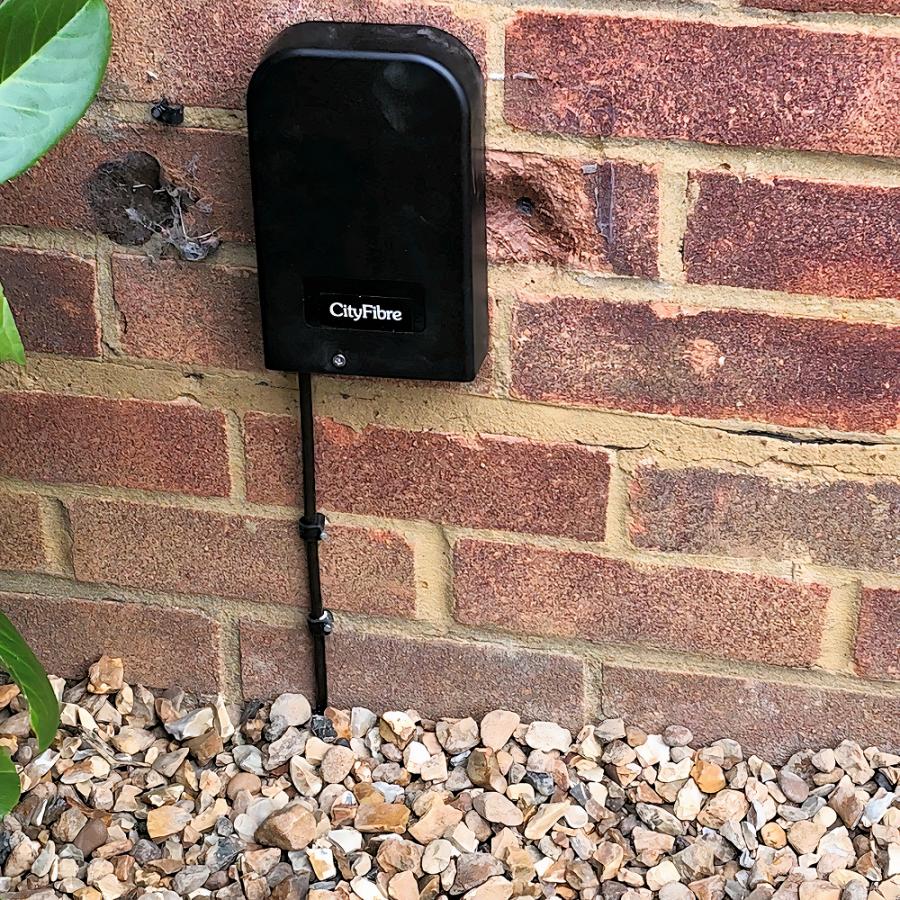



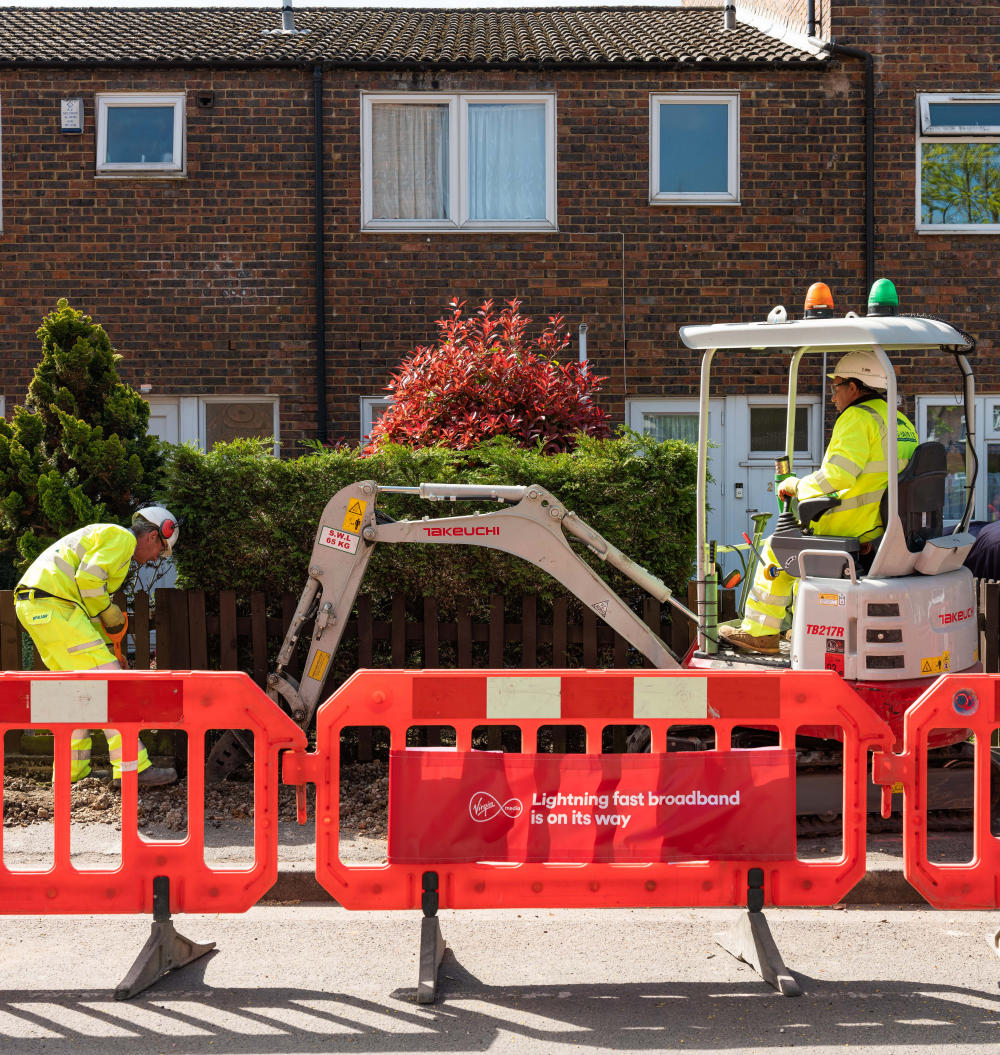



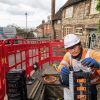







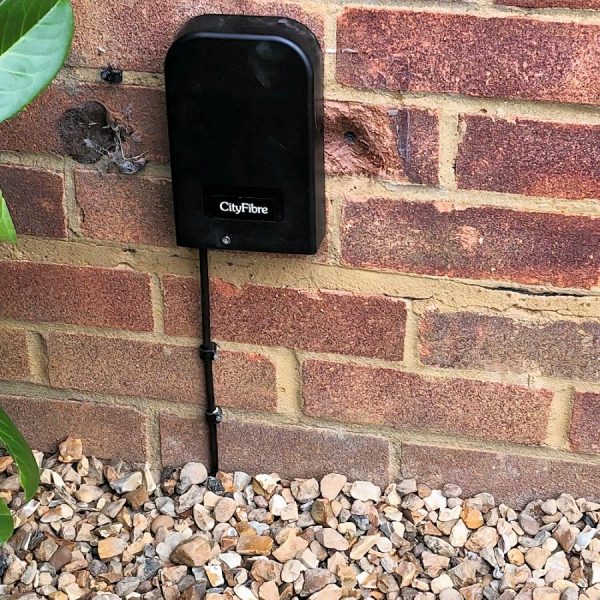

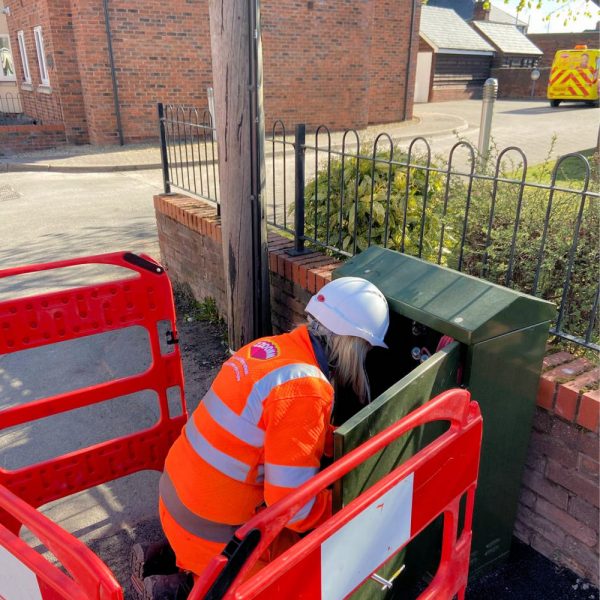



































Sooo.. magic money.. forest?
No, simple this and numerous other things will be dropped citing the EU (no deal Brexit) as the cause.
(When the reality is of course hia continual lieing) …
Simple answer: send in the drones! (Just hope they don’t get stuck halfway down the line…)
Good at last a Prime Minister with some ambition. BT have been draging thier feet for years prefering to protect thier investment in copper.
I think we should make the infrastructure upgradeable to 100Gb/s.
think you should read the IPSa letter first
before making such comments
That is quite an unrealistic goal and not warranted at this stage. Commenting on your other statement about BT protecting their copper investment you should do some research. The chief technical officer for BT, Dr Cochrane stated in 1979 that copper was far from sufficient for a digital future and had suggested fibre as the way forward but between them and 1990 they had invested heavily in fibre technology only to be told by the, then, prime minister, Margaret Thatcher that it wasn’t going to happen due to BT being the monopoly of the industry and the rest is history.
Just thought you would like to know before you make uninformed claims.
Meanwhile, as the race for full fibre gallops ever onward, the UK’s fixed wireless operators will continue to build, faster and cheaper than fibre, with technology delivering 100 Mbps and more, oodles enough for the average connection. Government ambitions seem predicated on 100% uptake of 100% coverage. Even without FWA, 4G and 5G, chances of that happening, as Boris would say ‘are vanishingly small’. Yes, I work for Village Networks, the small but perfectly formed rural ISP, whose wireless technology has allegedly always been doomed, for at least the last 15 years.
As usual, a great article from Mark.
It’s undoubtedly ambitious to try and deliver FTTP at such scale in a shortened period from the last government statement – and without any detail of funding.
It’s unlikely, given the recent comments from the new PM about effectively remaining under EU control after Oct 31 – and the ERG/Brexit supporting MPs reaction – that this current government with a majority of just 1 – will still be here much after Christmas, so delivery of FTTP is probably a moot point and will always remain just a headline.
There was however a few years back a great cross-party Lords report that drew on great expertise and made eminently sensible suggestions. One of these was for government to fund/support/encourage an FTTN (fibre to the node) infrastructure with potentially every village, parish, neighbourhood being able to get access to backhaul – that could be used by every ISP/provider.
With that expense and challenge covered, it would be simple to open up the connection to it to a multitude of smaller businesses, local communities, and others who may wish to complete the final mile.
That dis-aggregation and opening of the market would be hell for the big incumbents – but it would stimulate competition and open up the market – getting people connected.
Even if that were limited to the last few “difficult to connect” areas (but starting immediately) it would be highly beneficial.
Cricky Mark Jackson, after reading that little jem I have a headache, I suspect Boris will too, if he were to read this, however Boris is to be applauded (not to loudly I have a headache), it is great that Boris would like to see that achieved in such a little timeframe.
Technically I think it’s just about doable, however the biggest roadblock will be wayleave, I can see that hitting the courts because someone from the awkward brigade does not want boots trampling over their primroses
It’ll never happen, it’s a Tory PM ergo they just lie and lie and lie (like most politicians these days).. he won’t deliver Brexit and he certainly won’t get full fibre to my doorstep in the next 5 years!
It’s just all talk to make you vote for him in the inevitable up coming general election.
Boris Johnson will be gone on the 1st of November 2019 because he will fail to deliver Brexit Leave with no deal. General Election will wiped out Tory government in this autumn mean we won’t getting full fibre under new PM.
This is what Boris already senses!
He knows he probably won’t be in power for another 5-6 years so it is easy for him to promise Full Fibre for the whole country by then.
So when he loses in the next General Election and Full Fibre by 2025 is unachieved, he can then use that excuse to blame the opposition parties whoever wins the election for not being able to deliver it.
The same goes for Philip Hammond’s pledge for Full Fibre 2033, even that feels too unrealistic.
As I mention before calculation-wise with a 3% coverage per year, Full Fibre in 2025 will only be 25% and by 2033 it will be 49% unless the coverage jumps to much higher than current 3%.
Full Fibre for 2025 can only happen if UK FTTP coverage jumps by 15% every year. But that acceleration is hard to believe or imagine when the current rate is only 3% from 4% last year to 7% this year.
No party will be able to deliver Full Fibre by 2025! As for 2033 that’s more realistic but then again the jump needs to be by 6-7% per year. 6×14=84% 84+7= 91% FTTP coverage. In other words from now until 2033 in the next 14 years we need FTTP coverage to double from current 3% to 6-7% and even that’s a big ask, but way more doable. But as we can see even that doesn’t quite hit 100% never mind trying to achieve it in less time.
That of-course doesn’t make me a pessimist, it makes me a realist. But Boris Johnson will surely try to use the word ‘pessimist’ against the opposition parties to defend his unrealistic optimism. He is not being optimistic, he is being silly!
The Tories will win the next GE because of Boris, those that want to leave the EU (with or without a deal) were not convinced by Theresa May back in 2017 that’s why she done so badly, that won’t happen next time especially as the Lib’s will take votes from Labour.
No, The Tories will not win the next General Election simply because the Brexit party will take away a portion of their votes like in the example of Brecon and Radnorshire by-election where Lib Dem won thanks to 3000+ votes for the Brexit party. A constituency that voted leave. Yet Lib Dem are a Remain party.
This is why Boris is making these Fibre promises because he knows that a large chunk of Brexiteers in deprived areas of the UK also coincidentally have poor broadband. If he can’t convince them that No Deal Brexit will happen, how about try manipulating them by offering Full Fibre instead?
This is all political, No Deal Brexit is simply rhetorical because Boris thinks that by saying that he will be able to sway Brussels into agreeing a better deal. This strategy will most likely fail as the EU are not at all scared of a No Deal Brexit. Not to mention tackling the Irish backstop is almost impossible. Britain will lose Northern Ireland and Scotland. Any sensible Prime Minister will not take that risk.
Paradoxically, I have to admit No Deal Brexit is even more unrealistic than delivering Full Fibre to the entire UK. When October 31st No Deal does not happen, Boris will lose his popularity and when a GE happens he will lose dramatically. Just wait and watch!
@Rahul
Look forward to meeting you back here in November 🙂
The Brecon and Radnorshire by-election has no bearing on what a would happen in a general election. Local elections rarely do.
The fact the lib-dems won the by-election there also means nothing. The other remain parties basically stepped to one side to allow them to have a chance at winning. If you count the vote that went to all the leave parties (and they had all done the same thing IE basically stand aside just for one to properly campaign) you would had seen things go the other way (Something most media have failed to consider).
The original referendum vote there was 51.86% leave 48.14% remain. SO far from conclusive on either side of that debate even back then.
“When October 31st No Deal does not happen”
31st October is the deadline if there is not a deal in place by then then we are basically out with no deal by default unless Boris and the EU agree on yet another extension and neither of them are likely to want or do that. I suspect his plan is just to let the date lapse unless they start talking on the points he has mentioned.
I think based on your little real understanding of what is going on you have been watching one too many lilly liberals panic like a headless chicken BBC commentators recently.
Boris plays the clown but he is not as stupid (thats not to say he is a bit daft) as some that have been EU funded media brainwashed seem to think. Why do you not think he has bothered going back to Europe to discuss things further? He has told them either we talk about x, y and z or we do not. Running back to them every 5 minutes like May was just makes you look weak and desperate. Like or hate the man he has more of a clue how to play the negotiation game than dotty May did, hell i actually doubt she even understood what she was agreeing to.
There is no way he can deliver on half of what comes out of his mouth, and i do not deny half the time he is his own hype train but i suspect if he is given a chance he will do more for the country than Cameron and May did. (then again that would not be hard).
To think the Lib-dems will win a general election with their daily changing opinions on things (god really help us all if they did) or Corbin even has a chance now after him and his party could not make up their mind on Europe (his worse mistake since leadership of Labour) until it was too late is frankly hilarious. If there were a general election tomorrow there would be no clear winner, the same as there has not been for the past few. (IE some coalition would still be needed… oh and haven’t they worked so well so far!).
None of the parties are clear enough on policies nowadays, especially when challenged, or are just outright not trusted, that is why the vote ends up so split. People either do not bother, do not know, or the real Luddites just vote the same as they have for decades.
The fact there is still arguing about being in or out of Europe and its infected sites like this is even more pathetic than the parties and what is going on itself.
@Summer Is Here: I have long memories and I did not forget this topic and your post! 😉
November 1st has arrived, here I am, Brexit has not happened and my predictions end up being accurate as usual! 😀
Boris did not deliver Brexit and his deal was obviously not going to pass parliament and the deadline will have been extended.
We cannot trust this Prime Minister neither on Brexit nor on delivering Full Fibre to the rest of the country by 2025!
The question is whether we will even be able to get Brexit done by 2025, never mind Full Fibre for all by then!
This great. But when can I have just a broadband connection or a mobile signal!
I know I can ask for it next year (USO) but I won’t get it.
The definition of “full fibre“ has to exclude Virgin Media’s HFC network if only because VM is not going to replace it with fibre, madness to do so when DOCSIS 3.1 and some other network upgrades will provide speeds comparable with those of FTTP operators.
Serious question, but if their infrstructure can deliver gigabit speeds then why isn’t this considered FTTP? Because the cables aren’t literally fibre optic?
Because fttp means fibre to the premise.
Coax isn’t fibre
Surely it’s the performance and upgradability that matters, not the material of construction – that’s in danger of drifting into marketing hype…
I have learnt to recognize a sure sign when BoJo is telling lies. His mouth flaps open and closed.
StarLink…
Their goal should be to provide 1/10/100 gbps to every home, not just FTTP, including utilising wireless, laser (FSO/FSL), 5G and satellite communication such as OneWeb, SpaceX Starlink. It could be cheaper.
I read as a boy in the 1970’s about fibre optics. I got excited when our telephone exchange went digital in the late 80’s. Surly fibre was soon to follow. They were starting to put it into offices at least, but only for telephones.
I seem to recall every Prime Minister since Tony Blair has made promises on broadband. And here we are. I’m not hopeful.
Rather than 100% FTTP I’d rather see a 100% superfast (whether FTTP, 4G, fixed wireless etc.) target by 2025 (or sooner). Pushing for 100% FTTP (which can’t possibly be done by 2025) means that the cities and urban areas will get FTTP, and the slow and expensive to deploy rural areas get left until last (as usual). Most urban areas have superfast options already – they will end up with FTTP and rural areas will be left with ADSL.
Well look at the bright side industry and government are on the same tack.
At least FTTP is now in the top five issues agenda.
Let’s hope that something really anything that makes the rollout easier/cheaper/quicker comes out of this.
Johnson is an inveterate liar (he calls it “sandpapering the truth”) and has no chance whatsoever of delivering on this promise. Plus, given the dire economic warnings about the effect of Brexit (the Governor of the Bank of England, the CBI, the Government’s own impact assessments) there will be other economic necessities around the corner. If it comes down to the NHS or FTTP, I know what I’d choose…
Why does your 2015 bar chart go from high to low penetration and your 2018 bar chart go from low to high penetration. Is someone trying to confuse the man on the Clapham omnibus???
Did Boris write it on the side of a bus with all of his other lies?
Five minutes after the election he will have forgotten every promise.
I echo some some of the points in an earlier post by Aeurias. Whilst providing ultrafast fibre broadband nationwide is likely not feasible by the PMs 2025 timeline. Providing the same level of ultrafast broadband by utilising Low Earth Orbit i.e. OneWeb satellites will be possible by end 2021, well within the timeframe, and without having to deal with the complications associated with digging up the countryside etc. This is also likely to be far cheaper than fibre.
What does “Rural” and “total” mean on the charts? I assume rural areas vs total
How come the UK has more FTTP in rural areas than total?
BDUK and other programmes. Urban areas were getting FTTC, areas where FTTC wasn’t an option were ignored, rural areas were getting FTTP where FTTC didn’t make sense.